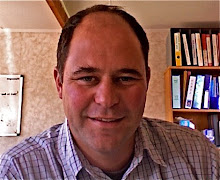Will has just completed his Honour's Dissertation in Quantum Information Science with a topic entitled
"Characterisation of a Proposed Optical Quantum Memory"
I have to admit that is way over this writer’s head, but Mr List and Mr Johnson say they know what he’s talking about.
Will’s next step in 2009 is to go to Vienna University which is at the World’s cutting edge in Quantum Optics, Nanophysics and Quantum Information. A quick Google will uncover their homepage and lead you into all sorts of domains.

Will is going to Vienna to work on the "reason the rules of QM are as they are". In Will’s words “It has been proposed that this reason is basically information, and that this is the fundamental quantity in the universe (not matter). Otherwise the group is working on these ideas about "Schrodingers Cat" (very loosely), basically trying to 'scale up' QM to see at which stage the world that we experience (governed by Newtonian Mechanics) starts to play a major role, and just how far into this world (the classical/Newtonian world) the ideas of QM can be applied.
This means that the world in which we live is vastly different if viewed from the perspective of an atom. At these tiny length scales (one millionth of a billionth of a metre) we meet the particles that make up you and I; electrons, protons neutrons and many others. But these particles do not behave as billiard balls. In fact they do not behave in a way that is possible to visualise. As far as anyone can tell these particles seem to follow an odd set of rules called Quantum Mechanics. This is a set of rules that in essence says, there is a fundamental limit on how much we can know about a particle. Thus the most we hope to predict about anything is the probability that it will do something.
The physicists that created these rules did so in an effort to understand the outcome of experiment. And the rules they came up with more accurately predict experimental results than any other set of rules ever created. But these rules seem to be unguided and without reason. A group of physicists, lead by Anton Zeilinger are attempting to find the reason that these rules are as they are. Zeilinger's group, based in Vienna, also hopes to understand whether of not Schrodingers famous cat is dead, alive or a bit of both (which is, of course, possible under the rules of Quantum Mechanics). They have also exploited these funny rules to teleport matter.
There are many questions that you may not have considered logical to ask which are being studied by physicists worldwide. If you are curious to find answers then you may find, as I have, that physics is the best position from which to search.”



